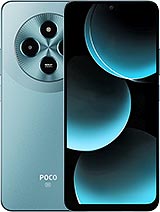Motorola Moto G05 4G alternatives
Tap above to see alternatives.
Tecno Pova Curve 5G alternatives
Tap above to see alternatives.
Motorola Moto G05 4G

Motorola Moto G05 4G
-
Helio G81
12 nm
-
5200 mAh
18W
-
6.67"
720 x 1604 pixels
-
50 MP
1080p@30fps
- Specs
Tecno Pova Curve 5G

Tecno Pova Curve 5G
-
Dimensity 7300
4 nm
-
5500 mAh
45W
-
6.78"
1080 x 2436 pixels
-
64 MP
4K@30fps
-
Specs

2x2.0 GHz Cortex-A75
6x1.7 GHz Cortex-A55
4x2.5 GHz Cortex-A78
4x2.0 GHz Cortex-A55
8GB 128GB (UFS 2.2)
f/1.8, (wide), PDAF
Sony IMX682, f/1.8, (wide), 1/1.73", 0.8µm, PDAF
2 MP
f/2.4, (depth)
1080p@30fps
f/2.1, (wide), 1.12µm
(Wide), f/2.2
1080p@30fps
SIM1: Nano, SIM2: Nano
SIM1: Nano, SIM2: Nano
2 5G bands
n3, n38
In this performance comparison, the Tecno Pova Curve 5G with its Mediatek Dimensity 7300 (4nm) performs better than the Motorola Moto G05 4G with the Mediatek Helio G81 (12nm), thanks to superior chipset efficiency.
Tecno Pova Curve 5G launched with Android 15 and will receive updates, while Motorola Moto G05 4G has no confirmed OS update information. Both phones are expected to receive security updates until around 2027.
Tecno Pova Curve 5G features a superior AMOLED display, while Motorola Moto G05 4G comes with an LCD panel. In terms of smoothness, Tecno Pova Curve 5G offers a higher 144 Hz refresh rate, ensuring fluid scrolling and animations. Tecno Pova Curve 5G also boasts a brighter screen with 1300 nits of peak brightness, enhancing outdoor visibility. Notably, Tecno Pova Curve 5G offers a higher screen resolution, resulting in sharper visuals and more detailed content.
Tecno Pova Curve 5G features a larger 5500 mAh battery, potentially delivering better battery life. Tecno Pova Curve 5G also supports faster wired charging at 45W, compared to 18W on Motorola Moto G05 4G.
Tecno Pova Curve 5G offers better protection against water and dust with an IP64 rating.
¹ Scores can vary even with the same chipset due to RAM, thermals, and software optimization.










